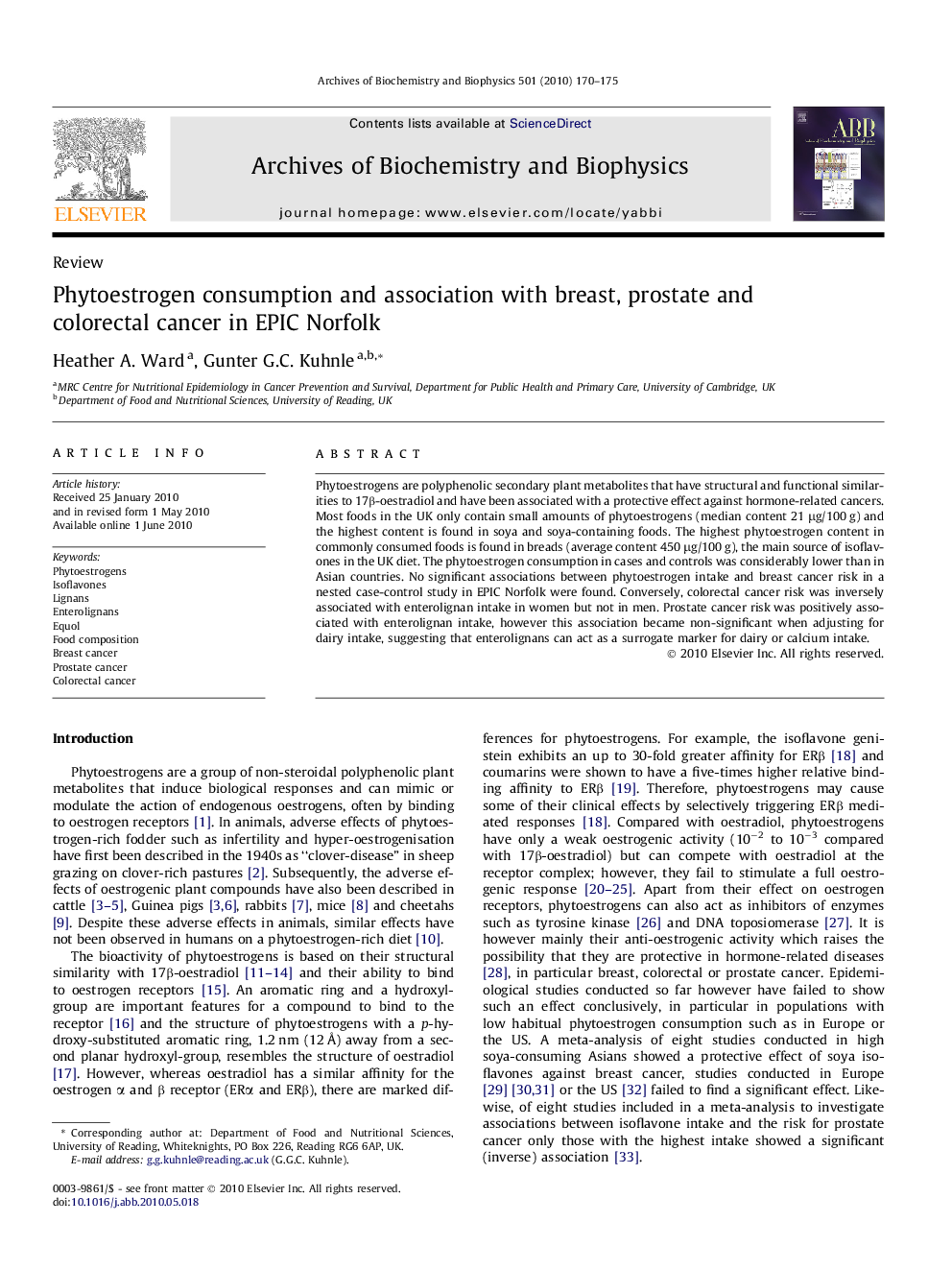| Article ID | Journal | Published Year | Pages | File Type |
|---|---|---|---|---|
| 1926013 | Archives of Biochemistry and Biophysics | 2010 | 6 Pages |
Phytoestrogens are polyphenolic secondary plant metabolites that have structural and functional similarities to 17β-oestradiol and have been associated with a protective effect against hormone-related cancers. Most foods in the UK only contain small amounts of phytoestrogens (median content 21 μg/100 g) and the highest content is found in soya and soya-containing foods. The highest phytoestrogen content in commonly consumed foods is found in breads (average content 450 μg/100 g), the main source of isoflavones in the UK diet. The phytoestrogen consumption in cases and controls was considerably lower than in Asian countries. No significant associations between phytoestrogen intake and breast cancer risk in a nested case-control study in EPIC Norfolk were found. Conversely, colorectal cancer risk was inversely associated with enterolignan intake in women but not in men. Prostate cancer risk was positively associated with enterolignan intake, however this association became non-significant when adjusting for dairy intake, suggesting that enterolignans can act as a surrogate marker for dairy or calcium intake.
